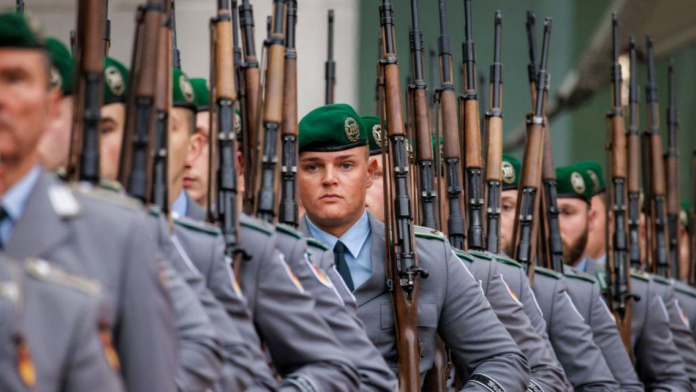Germany’s ruling conservatives signalled that compulsory military service might be necessary to address the Bundeswehr’s worsening personnel crisis, igniting fierce coalition debate over national security strategy, Politico reported.
Chancellor Friedrich Merz’s Christian Democrats (CDU) argue voluntary measures alone cannot meet NATO’s demand for up to 60,000 additional troops, while Defence Minister Boris Pistorius (SPD) maintains conscription remains impractical for now.
Thomas Erndl, CDU defence spokesperson in parliament, insists mandatory service must be considered if voluntary recruitment fails. He highlights the CDU/SPD coalition agreement’s deliberate phrasing, describing revived military service as “initially” voluntary as leaving the door open for conscription.
Pistorius, however, flatly rejects immediate conscription, citing catastrophic infrastructure gaps.
Conscription doesn’t help us at all right now, because we simply don’t have the capacity — not in the barracks, and not in training.
He stresses Germany must first rebuild accommodation and instructor cadres before absorbing conscripts, prioritising a Swedish-style voluntary model where 18-year-olds complete questionnaires about military aptitude. SPD defence spokesman Falko Droßmann echoed his statement.
We lack accommodations, equipment, and instructors. None exist sufficiently.
Germany’s suspended conscription in 2011 left troop numbers languishing at 181,500, far below NATO’s new requirements. Reservist Association President Patrick Sensburg warns voluntary schemes cannot close this gap, noting privacy laws obstruct efforts to mobilise experienced personnel.
Compounding this, NATO’s classified defence plans—crafted for a potential attack—reveal severe shortfalls in combat-ready brigades. Germany alone must provide seven additional brigades, part of a 50% alliance-wide increase.
